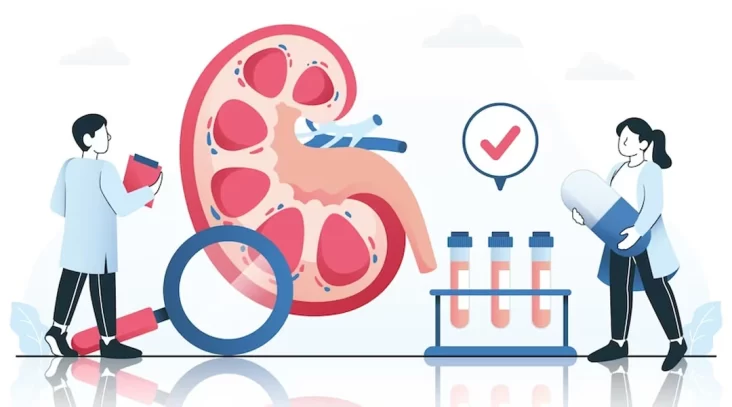In order to raise public awareness of the importance of kidney health and to spread information on the prevention and treatment of kidney disorders, World Kidney Day is commemorated every year on March 9. The serious health issue known as chronic kidney disease affects millions of individuals globally (CKD).
Here are some alternative treatments for kidney illness beyond dialysis
The disorder known as the renal disease makes it difficult for the kidneys to operate normally. Wastes and extra fluids can accumulate in the body when the kidneys begin to fail, which can cause major health issues.
There are steps that can be taken to stop the progression of kidney disease or stop more damage in its early stages. For instance, maintaining strict blood pressure control to keep readings under 130/80 mmHg, maintaining good blood sugar control for people with diabetes, giving up smoking, losing weight for people who are obese, reducing salt intake, and avoiding over-the-counter drugs that might be harmful to the kidneys.
Although preventing kidney disease is always of the first importance, there are numerous methods for CKD management.
Several forms of treatment are available if you decide against undergoing dialysis, and they can help you manage your symptoms. Dialysis, a kidney transplant, or inaction are all options for treating renal failure. Without dialysis or a kidney transplant, your healthcare team continues to monitor you if you are receiving conservative
kidney failure treatment
.
For the management of CKD, the primary disease must be treated. Conditions like CKD must be treated to prevent further kidney damage, whether they are brought on by diabetes, hypertension, or an inflammatory disease. Haemodialysis is required for patients with advanced kidney disease (CKD) whose kidneys can no longer filter more than 10% of the blood in order to maintain their health until a kidney transplant is available.
Many therapies that support reducing blood toxin levels, maintaining haemoglobin levels, preserving bone density, and lowering phosphorus and parathyroid hormone levels are beneficial for CKD patients. In the gastrointestinal tract, toxins in the blood can be reduced using alpha-keto analogues and modified prebiotics. You can take sodium bicarbonate tablets to counteract the acid your body produces.
For CKD patients, maintaining haemoglobin levels is crucial. Erythropoietin and iron injections can help raise haemoglobin levels. Moreover, patients can take calcium and vitamin D supplements to maintain strong bones, lower phosphorous levels, and decrease parathyroid hormone levels. The levels of phosphorus and parathyroid hormone can be further decreased by using phosphate binders and activated vitamin D3.
ARBs or ACE inhibitors, for example, can be used to stop additional harm in persons with diabetes and proteinuria or the majority of chronic renal diseases. It has been demonstrated that more recent medications such as SGLT2 inhibitors and Finerenone can delay the need for dialysis and renal failure. Bio-artificial kidneys and stem cell therapy are still in the research stages and cannot yet be used widely.
Dialysis or kidney transplantation are the only options when both kidneys have failed more than 90% of the time (haemodialysis or peritoneal dialysis). Since kidney transplantation can offer a higher quality of life and longer longevity than dialysis, it is frequently seen as the best alternative.
The patient’s unique kidney ailment, the severity of the disease, and their general health all play a role in the choice to pursue any of these treatments. While a kidney transplant may be recommended for those with end-stage renal disease, medications or dietary changes may be sufficient for people with early-stage kidney disease. We hope that alternative treatments for kidney illness beyond dialysis prove to be somewhat helpful to you.


2 Comments
Pingback: Alternative Treatments for Kidney Illness Beyond Dialysis – Sujata Birla Hospital
Pingback: UTIs in Adults | Sujata Birla Hospital